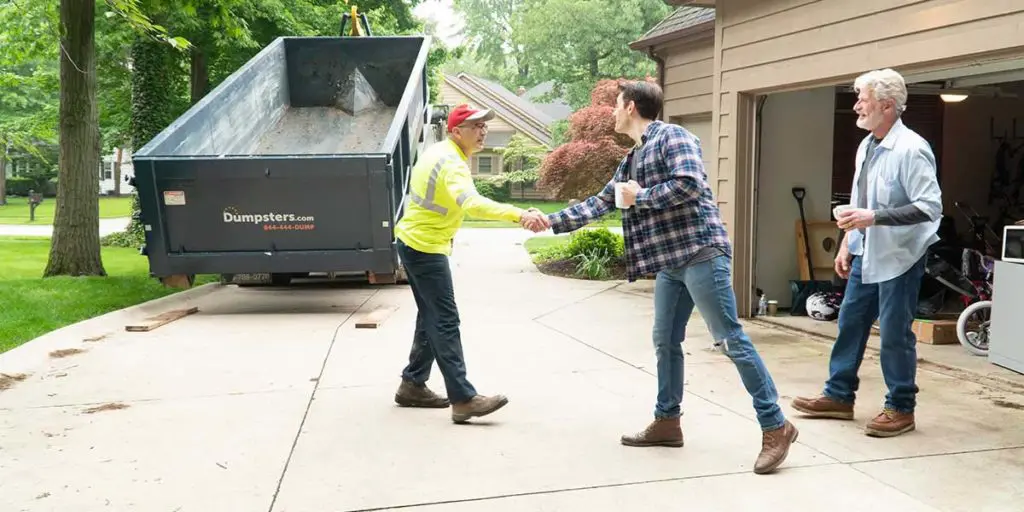Streamlining Operations: The Essential Guide to Business Dumpster Services
In the area of business operations, waste management stands as an important component. Efficiently coping with and doing away with waste isn't only essential for maintaining a clean and organized workspace, but it also contributes to environmental sustainability. Enter commercial enterprise dumpster services, a tailor-made solution designed to satisfy the waste control wishes of corporations. In this complete manual, we're going to delve into the arena of enterprise dumpster offerings, exploring their significance, key functions, and concerns for most fulfilling usage.
Understanding Business Dumpster Services
Business dumpster offerings offer an established method of waste disposal for commercial and commercial entities. They offer a range of waste field alternatives, collection schedules, and disposal methods to fit the particular needs and quantity of waste generated through organizations.
**1. Tailored Waste Solutions
Business dumpster services are designed to accommodate the numerous waste streams generated through distinct industries. This consists of well-known waste, recyclables, organic substances, and specialized waste sorts which include production debris or hazardous materials. Tailored answers make certain that groups have the appropriate containers and disposal strategies in the region.
**2. Container Options
Business dumpster services provide numerous field sizes to house distinctive waste volumes. These can range from small bins for modest waste manufacturing to huge dumpsters suitable for high-capability operations. Choosing the proper box size is important for efficient waste control.
**3. Customized Collection Schedules
Businesses can select from various series frequencies primarily based on their waste manufacturing. Some may opt for everyday pickups to hold always easy surroundings, while others may also require much less common collections. Customized schedules ensure that waste is managed successfully and in a manner that aligns with enterprise operations.
**4. Compliance with Regulations
Business dumpster offerings are equipped to navigate nearby, state, and federal regulations governing waste management. This includes adhering to disposal guidelines for precise waste types and ensuring compliance with environmental and safety standards.
**5. Recycling Initiatives
Many business dumpster services prioritize recycling efforts. They provide separate packing containers for recyclables, ensuring that materials like paper, plastic, metal, and glass are diverted from landfills and processed for reuse.
**6. Efficient Disposal and Environmental Impact
Proper waste disposal is important for minimizing environmental effects. Business dumpster services paintings with licensed disposal facilities and recycling centers to make sure that waste is treated responsibly and by environmental rules.
**7. Cost-Effective Solutions
By outsourcing waste control to a specialized provider, agencies can often attain valuable financial savings as compared to coping with waste removal in residence. Dumpster offerings streamline the method, lessen labor prices, and provide a clear pricing structure.
**8. Safety and Cleanliness
Maintaining a safe and clean painting environment is critical for worker well-being and productivity. Business dumpster services play a vital function in upholding those requirements by making sure that waste is contained and eliminated directly.
Considerations for Businesses
When choosing an enterprise dumpster service, companies must remember elements along with waste quantity, waste kinds, region, and budget. Conducting a radical evaluation of waste management needs will assist corporations in picking a provider that aligns with their precise requirements.
Implementing Business Dumpster Services: Best Practices for Success
Now that we've explored the significance and core features of business dumpster services, let's delve into some best practices for businesses to maximize the benefits of this essential waste management solution.
**1. Conduct a Waste Audit
Before engaging a business dumpster service, conduct a thorough waste audit. This involves assessing the types and volumes of waste generated, as well as identifying any specialized disposal needs. Understanding your waste profile will help you select the appropriate container sizes and service frequency.
**2. Implement Waste Segregation Practices
Encourage employees to segregate waste at its source. Provide clearly labeled recycling and waste bins to make it easy for staff to separate recyclables from general waste. This not only supports sustainability efforts but also reduces the volume of waste sent to landfills.
**3. Train Staff on Proper Waste Handling
Proper training on waste handling and disposal is crucial. Ensure that employees understand the importance of using designated containers correctly and disposing of waste according to company policies and local regulations.
**4. Regularly Monitor Waste Generation Trends
Track and analyze waste generation trends over time. This data can help you make informed decisions about container sizes, collection schedules, and recycling initiatives. It also provides valuable insights for identifying areas of improvement in waste management practices.
**5. Engage in Sustainable Practices
Consider implementing sustainable practices beyond waste segregation. Explore opportunities to reduce waste generation through initiatives like bulk purchasing, composting organic waste, and implementing reusable packaging solutions.
**6. Maintain Open Communication with Your Service Provider
Establishing clear lines of communication with your business dumpster service provider is crucial. This includes discussing any changes in waste generation patterns, adjusting collection schedules as needed, and addressing any specific disposal requirements.
**7. Regularly Review and Update Service Agreements
Periodically review your service agreement with the dumpster provider to ensure it aligns with your current needs and goals. This may involve adjusting container sizes, modifying collection schedules, or exploring additional services like recycling programs.
**8. Stay Informed About Local Regulations and Incentives
Stay abreast of local regulations about waste management, as well as any incentives or programs that promote sustainable practices. This information can inform your waste management strategies and potentially lead to cost savings or environmental benefits.
Conclusion: Optimizing Waste Management for Business Success
Business dumpster services are a cornerstone of powerful waste control techniques for companies. By leveraging tailor-made solutions, various container alternatives, customized series schedules, and compliance with regulations, businesses can streamline operations and contribute to a cleaner, extra-sustainable environment. Embracing commercial enterprise dumpster offerings now not simplest enhances efficiency but also underscores a commitment to accountable environmental stewardship. With the proper dumpster service partner, organizations are poised for achievement in a modern competitive market.









